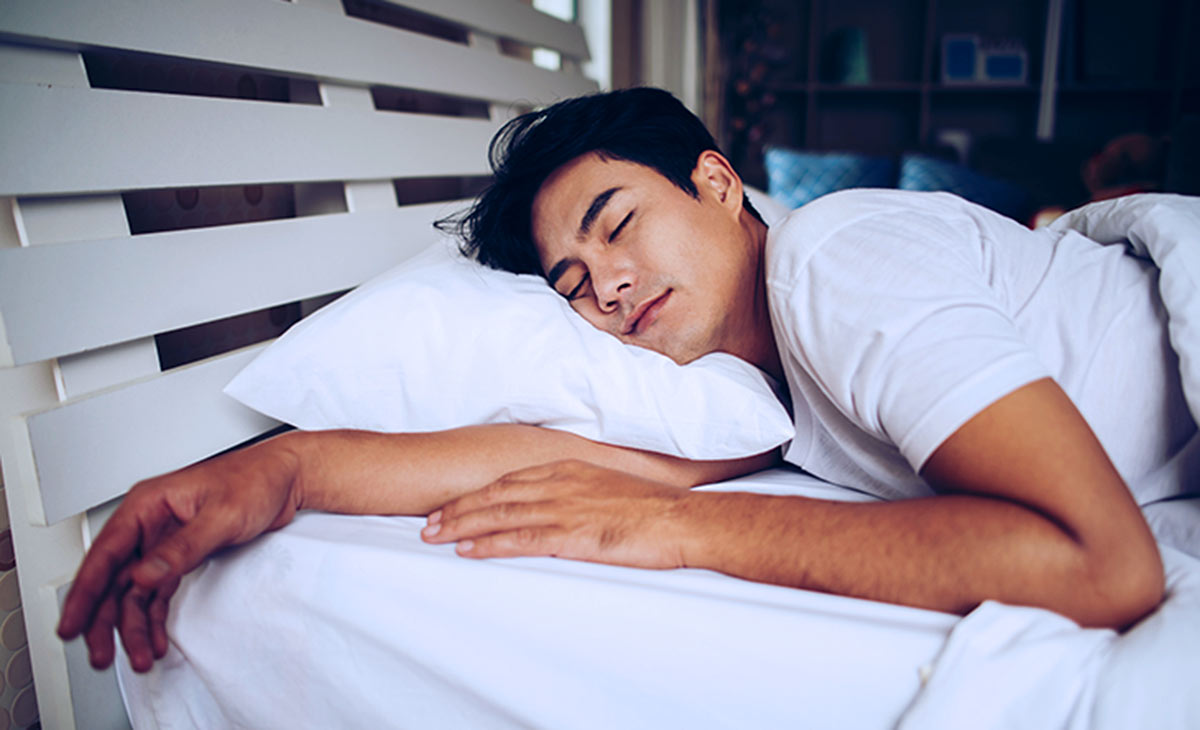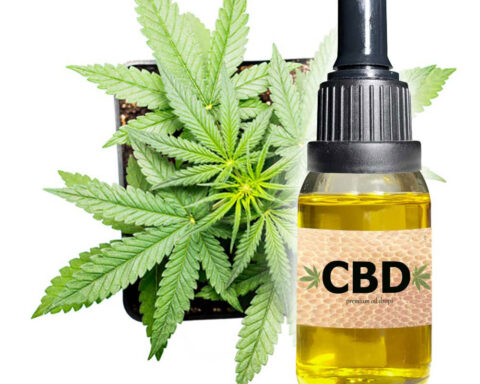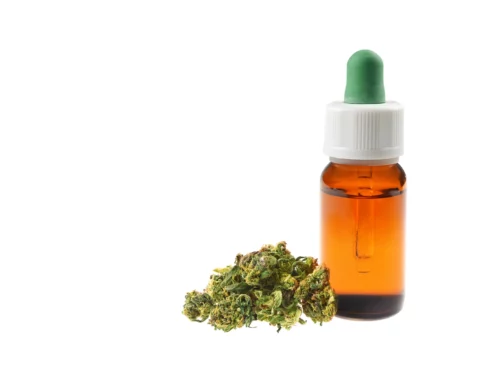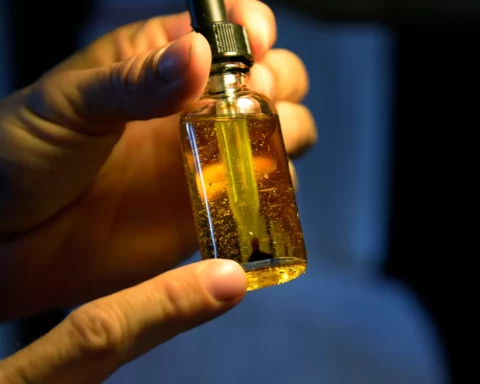One study indicated that a CBD dosage of 160 milligrams enhanced sleep duration compared to a placebo. Some studies have found that CBD oil can help those with anxiety and insomnia. Sleep quality profoundly affects life expectancy and general health and wellness. The recommended amount of sleep for adults is seven to nine hours. Getting enough sleep will leave one refreshed and ready to take on the day.
Additionally, enough sleep aids in the development of memories, the expansion and repair of muscle and tissue, and disease prevention. Cannabidiol (CBD) oil has several potential advantages, one of which is improving sleep quality. Although more studies are needed, preliminary results suggest that CBD may have positive health impacts. Initial findings for anxiety, pain, and sleep all look very good. The definition of CBD and how it affects your body and sleep are briefly explained below.
WHAT IS CBD (CANNABIDIOL)
Cannabinoids are a class of organic chemicals that serve as chemical messengers by binding to specific receptors in the brain and nervous system. Different cannabinoids may have different physiological effects. If CBD is produced from hemp and promoted following the relevant legislation, it can be sold legally in the United States. CBD does not cause intoxication like THC because it contains no psychoactive elements. Additionally, CBD has no effects that could potentially cause dependence or addiction danger. The use of CBD is on the rise across America. CBD has been touted for its purported health advantages, but the scientific evidence supporting these claims is scant at best.
WHAT THE STUDIES HAVE FOUND
Researchers have been motivated to investigate the effects of CBD by the rising public interest in the advantages of marijuana in general and in particular during the past decade. (Zhornitsky & Potvin,( 2012) Compared to a placebo, a CBD dose of 160 milligrams (mg) resulted in significantly longer periods of sleep. All four treatments (placebo, 5 mg nitrazepam for insomnia, 40, 80, and 160 mg CBD for sleeplessness) were effective. Cortisol levels often spike in the morning. However, insomniacs may have elevated cortisol levels at night; according to (Hirotsu et al. (2015), having high cortisol levels at night is connected with more frequent awakenings. In another study,300 and 600 milligrams of CBD oil resulted in the greatest reductions in cortisol levels. These findings indicate that CBD influences cortisol secretion and may have a calming effect. One hundred and three people with anxiety or sleep problems participated in a recent study on CBD and sleep. CBD doses varied between 25 and 175 milligrams. Researchers discovered that while 25 mg was the most effective dose for anxiety, greater doses were necessary for treating sleep disturbances.
EXTRA HELPFUL INFORMATION REGARDING CBD AND RESTFUL SLEEP
Numerous people use CBD to treat insomnia and similar sleep problems. Several potential insomnia triggers include pain, discomfort, and anxiety. It seems to reason that given CBD’s potential in relieving pain and anxiety, it might also aid in sleep.
PAIN RELIEF
CBD has been shown in several trials to be an effective pain treatment. According to (Vučković et al. ( 2018), CBD has promising therapeutic applications for various painful conditions, including cancer-related pain, neuropathic pain, and fibromyalgia.
STRESS LEVELS
Additional research is needed to determine whether or not CBD can alleviate anxiety. According to (Linares et al., 2019) studies, cannabidiol (CBD) could help reduce anxiety in stressful social circumstances. Recent studies have shown that cannabidiol (CBD) may help reduce stress levels. CBD could be helpful if stress is limiting you from getting enough rest.
TO ALLEVIATE ANXIETY
(Shannon et al., 2019) gave 72 female subjects 25 mg of CBD daily. Anxiety levels decreased by 79.2%, and sleep quality improved by 66.7% among individuals after 1 month.
TIPS FOR USING CBD
Examine the labeling to determine the correct dosage. It might indicate how much CBD there is per milliliter. If not, you will need to calculate how much is in the full bottle. The recommended starting dose is half a dropper, but a quarter of a dropper will do if one is cautious. Drops of CBD tincture or oil are placed sublingually .Hold it there for about 30 seconds before consuming.
Many people can take CBD without any adverse effects. On the other hand, one should know that there can be some negative effects. Studies have shown that CBD can have several undesirable side effects, including diarrhea, changes in appetite, fluctuating weight, tiredness, and drowsiness. The use of CBD alongside certain pharmaceuticals can lead to negative interactions. It is possible that combining CBD with medications that carry a grapefruit warning could be harmful. Always discuss with your doctor before taking CBD. The presence of THC in CBD products is not unprecedented. It is critical to understand whether THC can still be found in a CBD product because it can still appear on a drug test. Consulting a cannabis expert in the medical field is recommended.
WHEN TO SEEK MEDICAL CARE
Elderly folks and those with chronic medical or mental health conditions are disproportionately affected by insomnia. It is important for people who have difficulties in sleeping to talk to a doctor rather than trying to treat their condition independently. Problems with falling asleep, staying asleep, and the overall quality of sleep are all symptoms that may be present. Doctors may prescribe behavioral therapy, medicine, or a mix of the two for sleeplessness, but the optimal treatment method depends on the problem’s specific cause. Anyone suffering undesirable effects from a sedative or who believes they may be taking too many sleep aids should consult a medical professional.
CONCLUSION
Generally, there is empirical evidence to support the claim that CBD has positive health effects. While further studies are needed, cannabidiol (CBD) may help reduce insomnia symptoms and promote restful sleep. Some people use CBD to treat sleeplessness on their own. Although studies on the effects of CBD are scarce, it seems safe for regular use. If individuals have trouble sleeping, they should first talk to their doctor about what could be causing their problem and how they can begin to cure it.
REFERENCE
Hirotsu, C., Tufik, S., & Andersen, M. (2015). Interactions between sleep, stress, and metabolism: From physiological to pathological conditions. Sleep Science, 8(3), 143-152. https://doi.org/10.1016/j.slsci.2015.09.002
Linares, I., Zuardi, A., Pereira, L., Queiroz, R., Mechoulam, R., Guimarães, F., & Crippa, J. (2019). Cannabidiol presents an inverted U-shaped dose-response curve in a simulated public speaking test. Brazilian Journal Of Psychiatry, 41(1), 9-14. https://doi.org/10.1590/1516-4446-2017-0015
Shannon, S., Lewis, N., Lee, H., & Hughes, S. (2019). Cannabidiol in Anxiety and Sleep: A Large Case Series. The Permanente Journal, 23(1). https://doi.org/10.7812/tpp/18-041
Vučković, S., Srebro, D., Vujović, K., Vučetić, Č., & Prostran, M. (2018). Cannabinoids and Pain: New Insights From Old Molecules. Frontiers In Pharmacology, 9. https://doi.org/10.3389/fphar.2018.01259
Zhornitsky, S., & Potvin, S. (2012). Cannabidiol in Humans—The Quest for Therapeutic Targets. Pharmaceuticals, 5(5), 529-552. https://doi.org/10.3390/ph5050529.
- FDC – Giejo Magazine Article - July 29, 2023
- MoriMa Tea the – Chinese tea culture - April 26, 2023
- Missionary Position – Least Likely To Bring You To Climax - April 7, 2023









